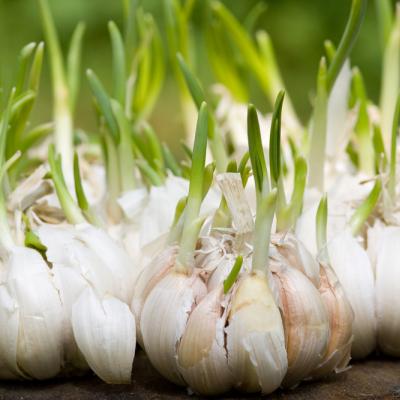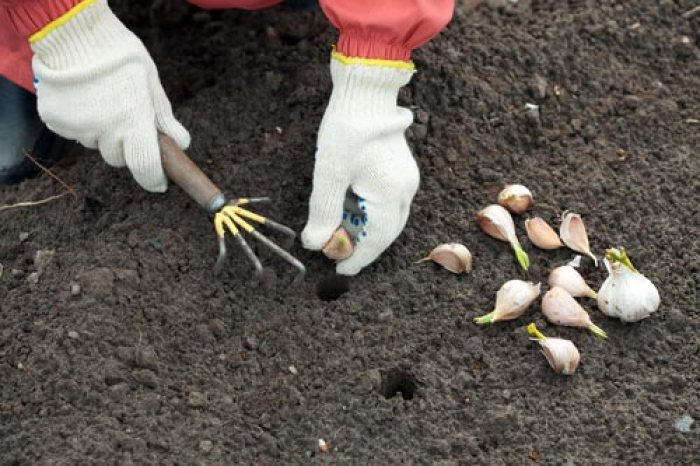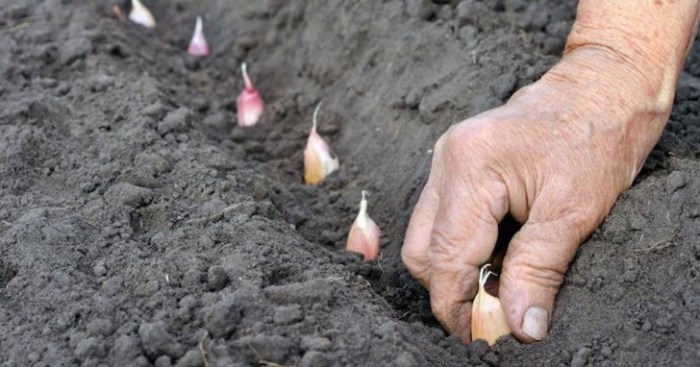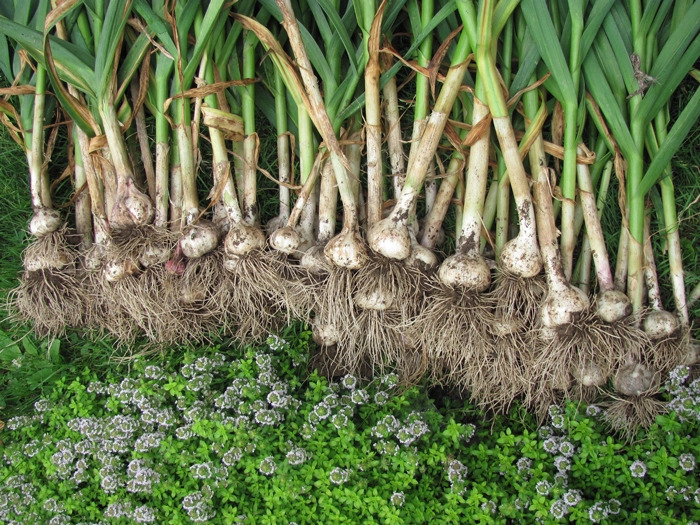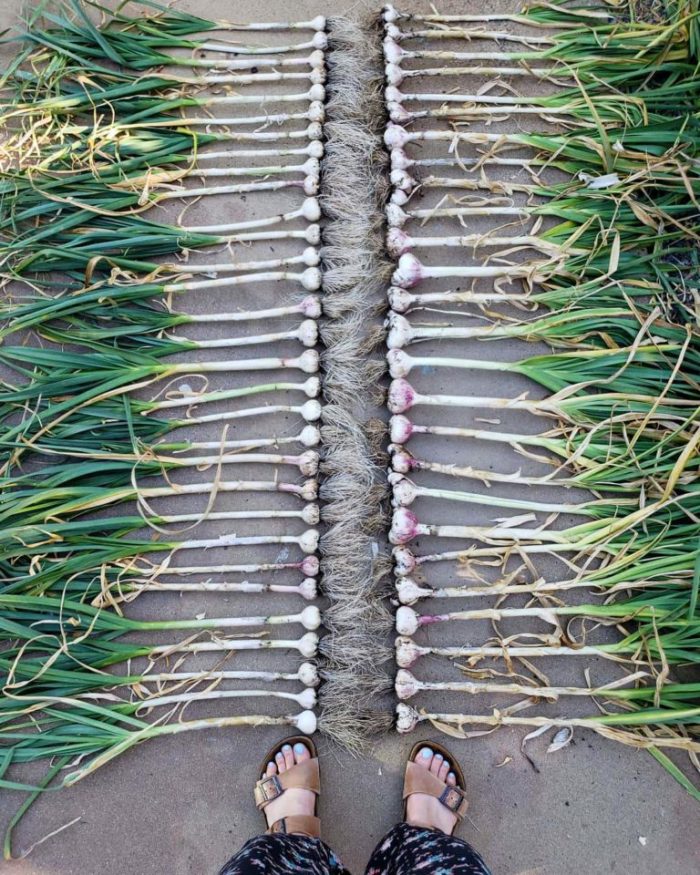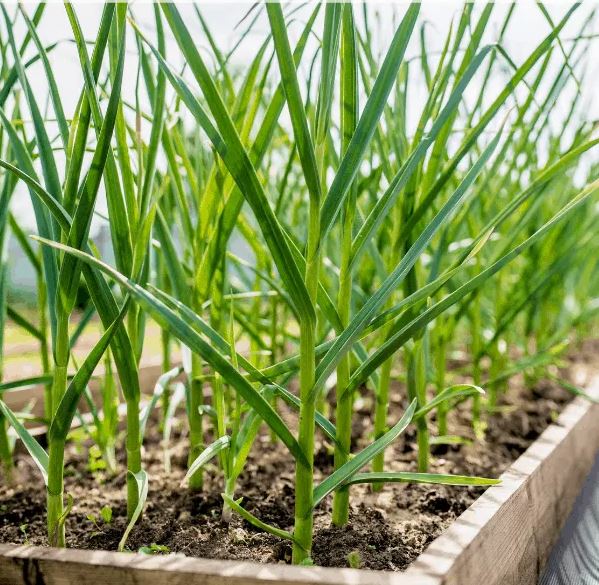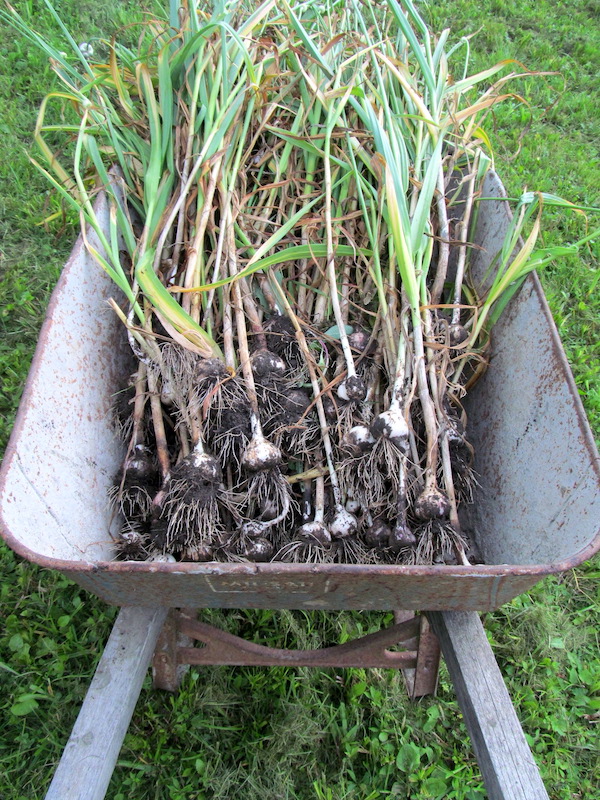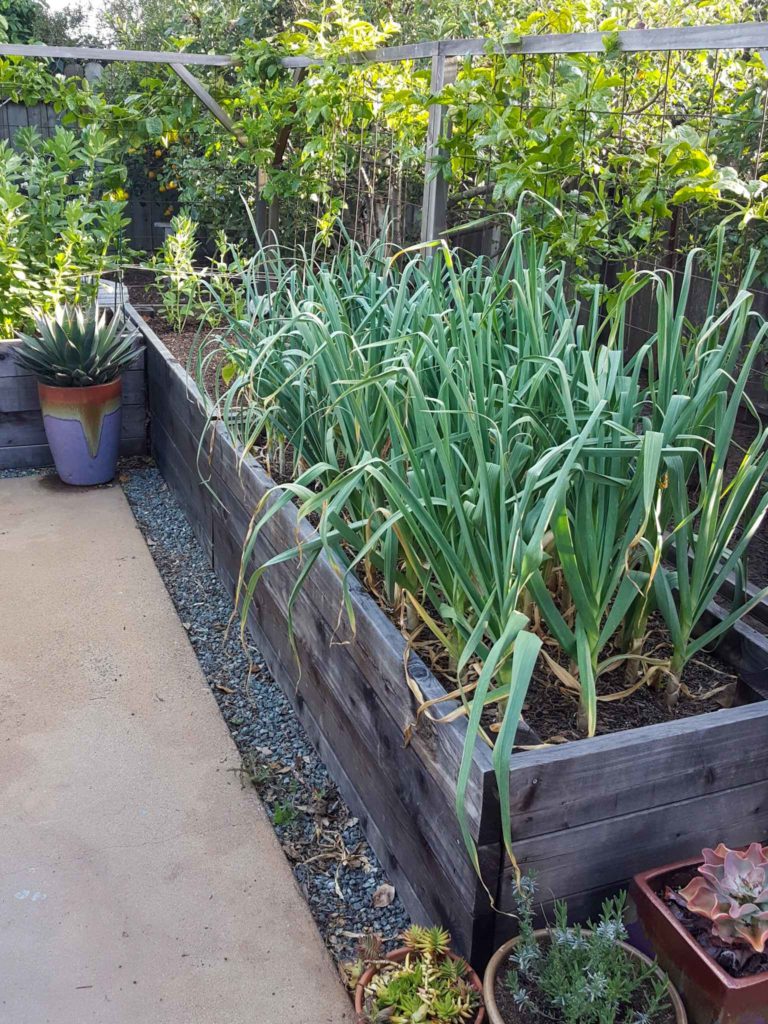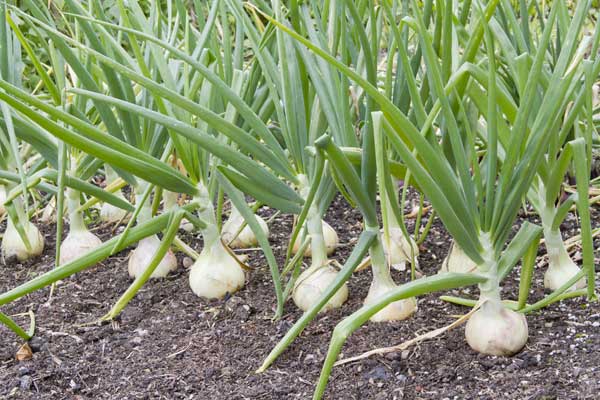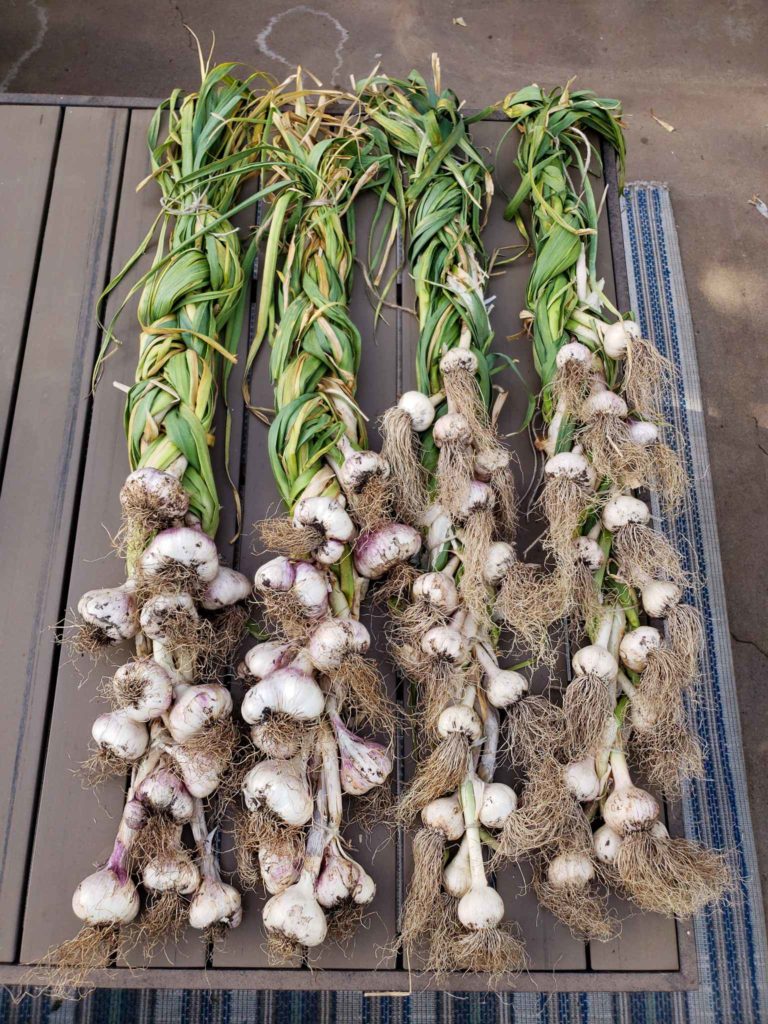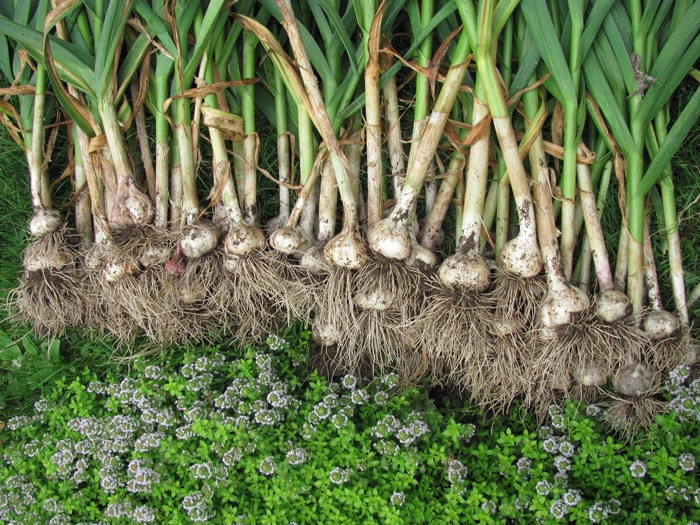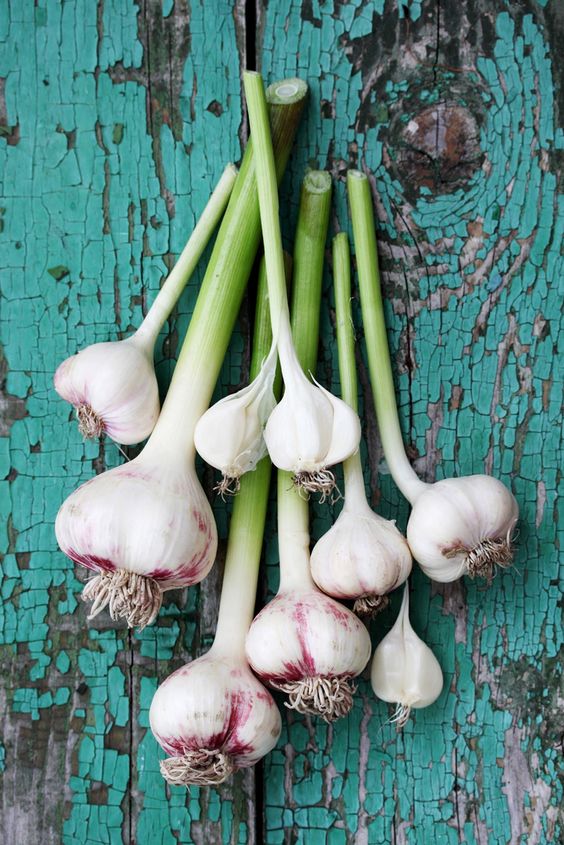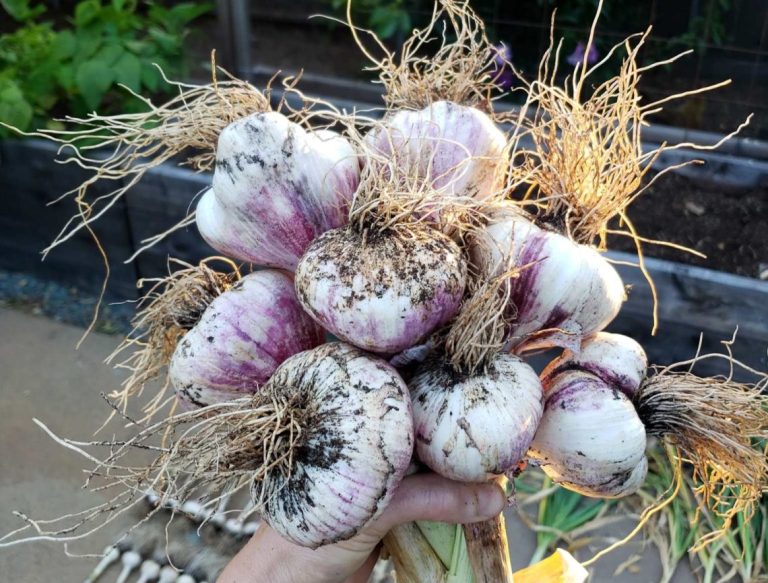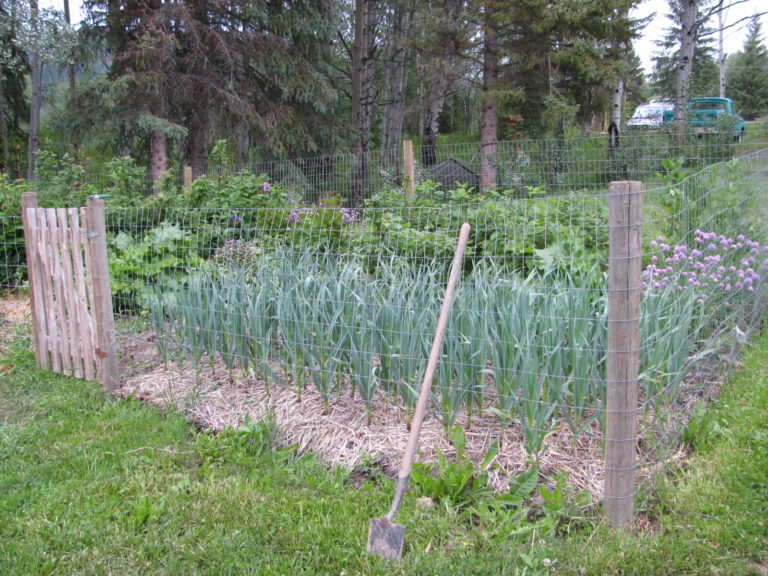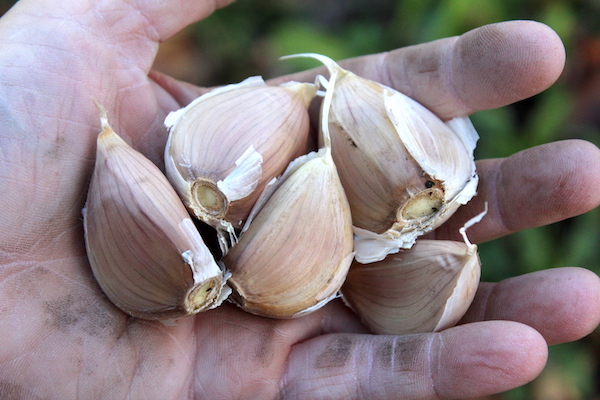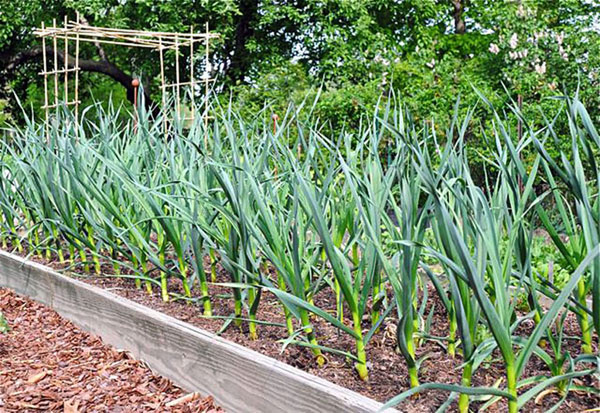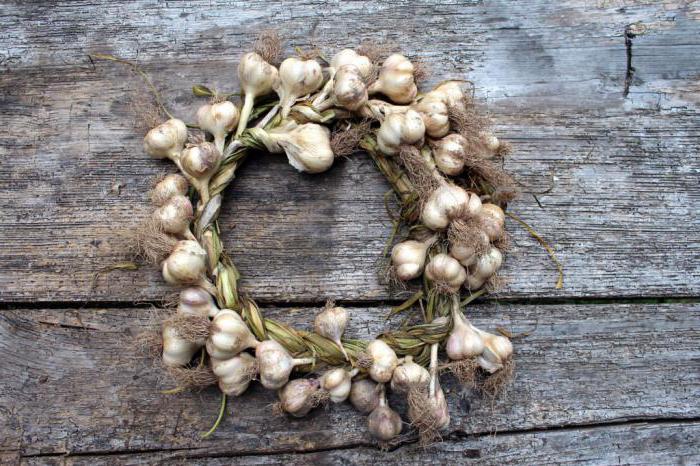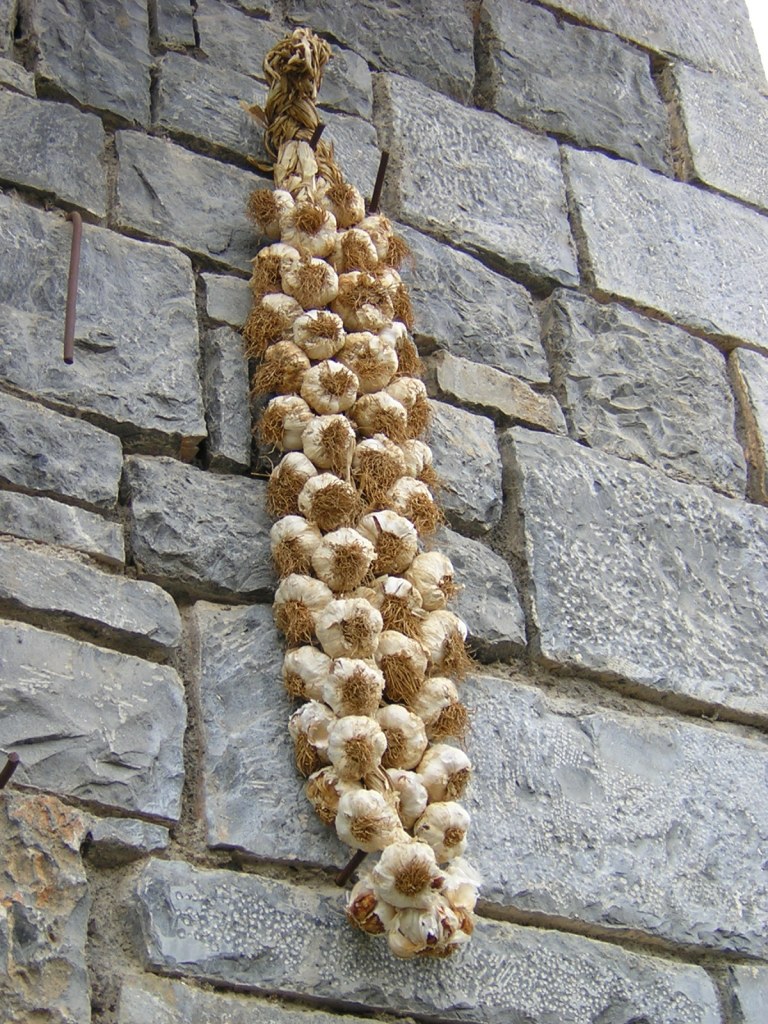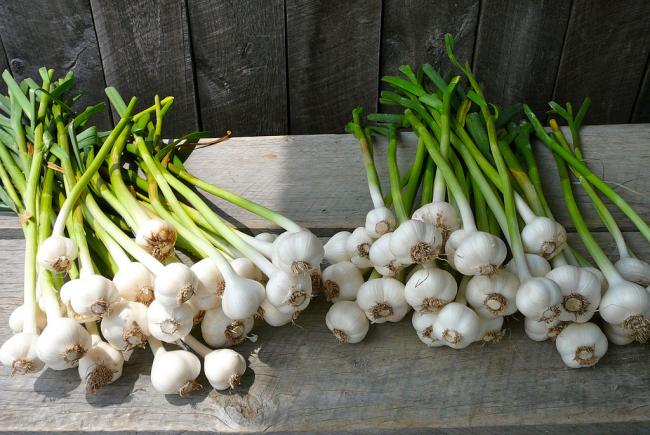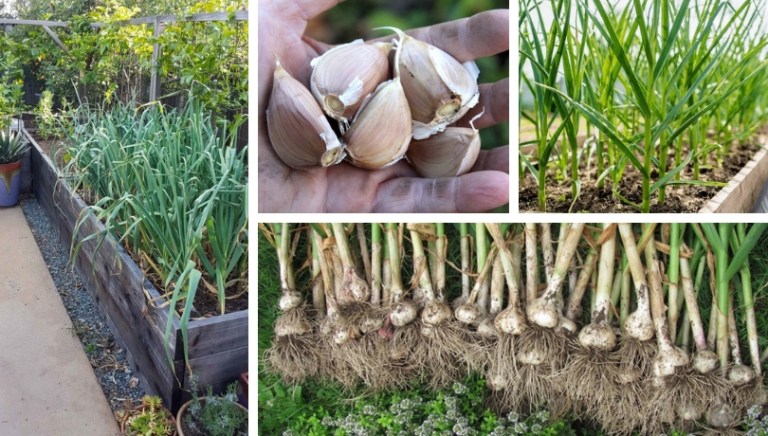
Secrets Growing garlic in your garden and in flowerpots
What an intense aroma and spicy taste! Garlic, one of the most popular aromatic vegetables of the Mediterranean cuisine, is cultivated, like the onion, for its fresh foliage and its dried bulbs. And if we do not have a garden, we do not grieve. We can very easily plant garlic in a pot on your balcony and enjoy it in various recipes.
Home vegetable gardens – the necessary steps to create them perfectly
When and how do we plant garlic and with which plants does it grow?
The best season for planting garlic, in the hottest parts of the south, starts in October – November, and in the coldest and mountainous in February – March. Garlic thrives in cooler weather as the foliage grows and at higher temperatures during bulb formation. To plant them, use garlic cloves, which we plant at a depth of 2-3 cm at intervals of 10-15 cm between the cloves, and the garlic planting lines should be 20-30 cm apart. Garlic can be cultivated and give us very good production along with lettuce, spinach, peas, parsley and celery. After all, the benefits of growing plants in the vegetable garden are very important, from better utilizing the space we cultivate to saving on water and nutrients.
What soil is needed for planting garlic and how do we prepare it?
Garlic prefers areas with dry and mild climate without severe frosts, without much rainfall and high humidity. The cultivation of garlic requires light and fluffy fertile soils to thrive. Garlic is planted in well-drained soils, as heavy clay that holds a lot of moisture will rot or produce smaller garlic heads. Before planting the cloves of garlic, we plow our field to a depth of 20-30 cm and incorporate plenty of compost, good manure or complete biological fertilizer to grow the heads of the garlic produced. To plant garlic in a flower pot, we use pots at least 15 cm deep and a general-purpose, quite fluffy pearl-containing pottage.
.
How to make most amazing square DIY vegetable and flower beds with old pallets
What watering and lubrication does the garlic need?
Regarding watering, garlic is relatively drought resistant and does not need water very often. Excessive watering especially after planting can rot our plant. Also, in the spring, 2-3 weeks before the final harvesting stage, the watering should be stopped in order for the garlic heads to ripen properly. Garlic has no particular requirements for fertilization beyond the initial incorporation of compost, manure or fertilizer. Traditionally, growers also sprinkle ashes on garlic planting sites to limit the growth of unwanted weeds (weeds) while also adding nutrients to the soil.
What are the main insects and diseases that affect garlic?
Poor ventilation and high humidity conditions during garlic cultivation favor the development of fungal diseases such as perennial, botrytis and rust. The thinning of the leaves with thiochalcine or spraying with an eco-friendly copper and thiolate solution helps prevent diseases. To treat insects that attack garlic, such as onion flies, lizards, thrips and mullein, we spray with an eco-friendly formulation of potassium soaps.
What is the process of harvesting and drying garlic?
Fresh garlic is harvested 2-3 months after planting, when the height of the foliage reaches about 20 cm. The dried garlic is harvested 6-8 months after planting, when most of its leaves turn yellow and slop to the ground. When exporting garlic bulbs, be careful not to injure them because there is a risk of rotting after harvest. Next, we leave the garlic bulbs on the soil to dry them and cover them with their dried leaves, so we don’t have sunburn problems. We can store our garlic in trays or we can hang them in braids to ensure good ventilation.
And a secret to growing garlic
The outer cloves of garlic when planted for dry garlic give a larger size (bulbs) than the inner garlic cloves. Therefore, we prefer to plant the outer cuttings for dry garlic on a separate planting line, while the inner cuttlefish for fresh garlic.
.
.
.
.
.
.
.
.
.
.
.
.
.
.
.

